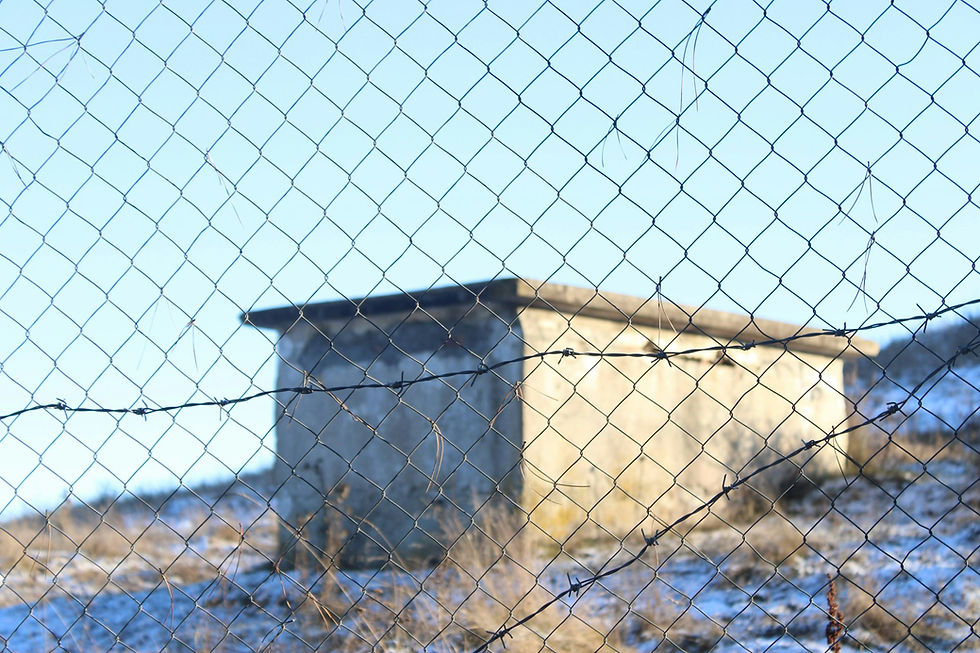Weather Resistant Fencing: Choosing the Right Fence Material for Your Climate
- Amko Fence & Steel

- May 5, 2024
- 4 min read
Fences are designed to provide security, privacy, and aesthetic appeal to homes and businesses alike. However, different geographical regions often experience varied climatic conditions, which can significantly impact the performance and longevity of a fence. It's essential to choose a fence material that can withstand the local climate while maintaining its functionality and appearance over time. As experts in fence installations since 1976, we understand the importance of making an informed decision when selecting the most suitable weather-resistant fencing option for your needs.
There are several factors to consider when choosing a fencing material that can withstand various weather conditions, including humidity, temperature fluctuations, and exposure to sun, wind, rain, or snow. Some materials might be susceptible to rot, corrosion, or warping due to specific climatic factors, leading to increased maintenance needs or premature replacement. By selecting a material that is well-suited to your local climate, you can ensure long-lasting protection, durability, and visual appeal for your property.
Weather-resistant fencing options are available in different materials and styles, each with its unique advantages and potential drawbacks. From nature-inspired wooden fences to sleek aluminum or sturdy vinyl options, the choices are vast. Our knowledgeable and experienced team can guide you through the selection process, ensuring that you make the most appropriate decision based on your geographical location, property's environmental conditions, and personal preferences.
Wood Fences: A Classic Choice with Climate Considerations
Wooden fences offer a timeless and natural appearance, making them popular among homeowners. However, they can be susceptible to specific weather-related issues, such as rotting, warping, and insect infestation. To extend the life of a wood fence:
A. Choose weather-resistant wood species like cedar, redwood, or treated pine, which have natural resistance to moisture and insects.
B. Regularly maintain the fence by sealing or staining it to protect against water damage and UV radiation.
C. Inspect for signs of decay, insect damage, or loose posts, and address these issues promptly to prevent further deterioration.
While wooden fences require more upkeep in comparison to other materials, their natural beauty and charm make them worth the effort when adequately maintained.
Vinyl Fences: Low-Maintenance and Weather Resistant
Vinyl fences are an increasingly popular choice due to their durability and low maintenance requirements. They are resistant to various weather conditions, including moisture, temperature fluctuations, and UV radiation. Key benefits of vinyl fences include:
A. They do not warp, rot, or fade, ensuring their beauty and structural integrity for years to come.
B. They are resistant to insects, mold, and mildew, making them an ideal choice for humid climates.
C. Their low maintenance requirements save time and effort, as they typically only need occasional cleaning with mild soap and water.
Though the initial cost of vinyl fencing can be higher than wood or chain-link options, the long-term savings in maintenance and replacement costs make them a worthwhile investment.
Aluminum Fences: Lightweight and Durable in Diverse Weather
Aluminum fences combine elegance with durability, making them a versatile choice for various weather conditions. They are particularly suitable for areas prone to humidity and precipitation, as they are corrosion-resistant. Advantages of aluminum fences include:
A. They are lightweight and easy to install, reducing labor requirements during installation.
B. They can be finished with a powder coating, enhancing their weather resistance and giving them a polished appearance.
C. The availability of various styles, colors, and designs allows for easy customization to complement your property's aesthetics.
Although aluminum fences might not offer the same level of privacy or security as other materials, they are an excellent choice for their combination of weather resistance and aesthetic appeal.
Chain-Link Fences: Affordable Durability in Adverse Conditions
Chain-link fences are a cost-effective and low-maintenance option that can withstand diverse weather conditions. While they may lack privacy and visual appeal compared to other materials, they offer several benefits:
A. They are resistant to rust, especially when coated with zinc (galvanized) or vinyl.
B. They hold up well in windy conditions, as the open mesh design allows for wind to pass through without causing damage.
C. They can be easily repaired or replaced if a section becomes damaged due to weather-related events.
D. Various styles and colors are available, allowing customization to fit your property and preferences.
Chain-link fences are an ideal option for those seeking a budget-friendly and low-maintenance fencing solution, despite the trade-off in privacy and aesthetics.
Conclusion:
Selecting the right weather-resistant fencing material involves weighing various factors such as durability, maintenance needs, aesthetics, and your local climate. Each fencing option offers unique advantages and potential shortcomings. Wood fences provide a classic appearance but require more maintenance, while vinyl and aluminum options offer durability and low upkeep. Chain-link fences are an affordable and sturdy choice with less emphasis on aesthetics and privacy.
Consulting with experienced professionals and considering your property's specific environmental conditions will help you make an informed decision on the ideal weather-resistant fencing material that meets your unique needs. Reach out to Amko Fence today to discuss your options and explore the best fence installation services to provide a long-lasting, attractive, and functional fence that suits your property and climate.




Comments